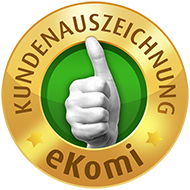Closely Related Adjectives


Basics on the topic Closely Related Adjectives
Closely Related Adjectives
Transcript Closely Related Adjectives
When the great debate began, Koko, Pip, and Bertha were enjoying a night under the stars! "Time to roast some hot dogs! They are so good!" "They are okay, but roasted s'mores are outstanding!" "They are too messy!" "Let Bertha decide who has the better food idea, and quickly, because I'm hungry!" If Pip and Koko want to persuade Bertha to like their choice, they need to learn about... Closely Related Adjectives Synonyms are words that are closely related in meaning, but they have little differences between them. An adjective, or describing word, can also have synonyms! Weaker (...) or stronger adjectives can help us show what we want to explain. The differences between the weaker and stronger adjectives are called “shades of meaning." This is because some words may be more POWERFUL than the others when describing nouns. Let's look at the adjectives Koko and Pip used. Koko said that hot dogs are "good". Pip said that they were "okay", but s'mores were outstanding. "Good", "okay", and "outstanding" are all adjectives to describe the quality of something. Even though these adjectives are all closely related, let’s think about putting them in order from weakest description to strongest. "Okay" would be the weakest adjective because it means that you will accept something, but don't feel that strongly about it. The next adjective would be "good". When something is good, it is a general way to say we like it. "Outstanding" is the strongest adjective because it means the quality is standing out when compared to others. Let's look at another example. Koko said that s'mores were messy. "Filthy" and "dirty" also mean "messy". Think about these descriptions. "Filthy", "messy", "dirty". Which is the weakest description? "Messy" If something is messy, it is untidy. Which description would come next? (...) "Dirty" is next because it means that it is untidy AND also unclean. "Filthy" is the strongest description because it means EXTREMELY untidy and unclean. Although "filthy" is the most powerful adjective, it doesn't mean we always choose it. Sometimes we may need to choose a weaker description to match the situation. In this situation, "messy" is the best choice. Here's one to try on your own. Pip said he was "hungry". "Famished" and "starving" also mean "hungry". Put these closely related adjectives in order from weakest to strongest. "Hungry" would be the weakest description because it means you are feeling like you are ready to eat. "Starving" is next because it describes an uncomfortable feeling from NEEDING to eat. And "famished" is the strongest. It is an extreme level of hunger. Before we see how our campers are doing, let's review. Remember, adjectives are words that describe nouns, and they can have synonyms. Weaker or stronger adjectives can help us show what we want to explain. The differences between the weaker and stronger adjectives are called “shades of meaning." This is because some words may be more POWERFUL than the others when describing nouns. The story will determine what shade of meaning to use! "Hot dogs!" "S'mores!" "Hot dogs!" "S'mores!" Looks like Bertha has decided on a S'MORE-DOG!
Closely Related Adjectives exercise
-
What are synonyms?
HintsAn example of synonyms are happy and glad.
Remember, synonyms are closely related in meaning.
SolutionSynonyms are words that are closely related in meaning, but have little differences between them.
For example: sad and upset are synonyms.
-
What are the synonyms?
HintsSynonyms are words that are different but have similar meanings, like sleepy and tired.
SolutionTwo synonyms for big are giant and large. These words are similar in meaning. We can say "Earth is big!" We can also say Earth is large or giant!
-
Pair the synonyms.
HintsRemember, synonyms are words that are closely related in meaning, but they have little differences between them.
Sick and nauseous are synonyms. They both are used when someone is not feeling well. You can say "I feel sick" or "I feel nauseous", since they have similar meanings.
If happy and overjoyed were listed, you would pair them together. They have similar meanings.
SolutionThe synonyms are:
Mad, Angry
Calm, Peaceful
Strong, Powerful
Tired, Exhausted
Excited, Thrilled
These pairs show synonyms: words with similar meanings.
-
Sort the adjectives.
HintsRemember, some adjectives are weaker and some are stronger. Which of these is the strongest adjective: good, funny, or hilarious?
When you tell a really funny joke, what word would you use to describe it? Good, funny, or hilarious?
SolutionThe weakest adjective is good, because it means that you will accept something but don't feel that strongly about it.
The next adjective is funny, because it is better than good, but not as strong as hilarious.
The strongest adjective is hilarious, because it describes something very, very, very funny!
-
What are the differences between weaker and stronger adjectives called?
HintsRemember, the difference between closely related adjectives has to do with meaning.
strong and tough are synonyms, because they have similar meanings.
SolutionThe differences between closely related adjectives is called shades of meaning.
-
Categorize the words based on shades of meaning.
HintsThere are synonym pairs in this list, one weaker and one stronger. Look at big and massive.
I built a big lego tower.
I built a massive lego tower.
Which adjective is weaker, and which is stronger?
Use the words out loud - which words have a stronger impact in a sentence?
Identify the words that are synonyms, then sort them into weaker and stronger based on their shades of meaning.
Look at the synonym pairs present to help decide weak and strong adjectives:
mad, furious
yummy, delicious
massive, big
gorgeous, pretty
SolutionWeaker: mad
Stronger: furious
Weaker: yummy
Stronger: delicious
Weaker: big
Stronger: massive
Weaker: pretty
Stronger: gorgeous











